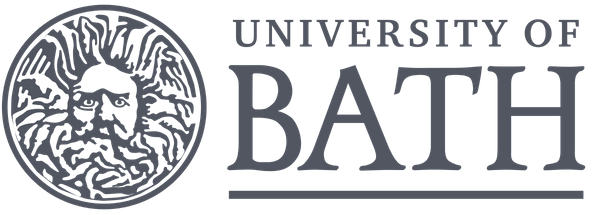Project
description
Objectives
Challenges
Participants
Phases of development
Expected outputs
Addressing early school leaving is a political challenge at the European level. Of the factors linked to early leaving, a lack of, or misdirected, ‘orientation’ (personal, educational, or career, guidance) has been identified as a key intervention point. Orienta4YEL aims to train and support educational agents in the delivery and evaluation of an intervention plan designed to address the risk of early leaving through ‘orientation’ and ‘tutorial actions’.
Our goal is to develop, implement and evaluate a set of innovative strategies and practices focused on facilitating student guidance. This will be delivered through tutorial actions designed to promote the inclusive education of young people who are early leavers, or who are at risk of early leaving; either in formal or non-formal educational contexts.
Our preliminary research aim is to develop a diagnostic of risk factors and support mechanisms to prevent early leaving, to support educational agents in dealing with young people who are early leavers or who are at risk of early leaving. We also aim to establish learning networks, as well as to identify effective leadership in educational institutions that promote young people’s educational and social inclusion.
Our main target group is young people who are early leavers or at risk of early leaving within different educational stages such as secondary compulsory education, initial/basic vocational education and training (VET) programmes (level 1), intermediate VET programmes (level 2). We can also identify the educational stakeholders who are involved in working with and supporting this group of young people.
Orienta4YEL is a project of 3 years (january 2019 – december 2021).
Orienta4YEL works on an intervention proposal that aims to develop good practice that can be applied in any member state. We seek to contribute to the improvement of initiatives addressed to early leaving.
-
Project
description -
Objectives
-
Challenges
-
Participants
-
Phases of development
-
Expected outputs
The percentage of young people who leave education and training prematurely continues to decline, so there is a theoretical possibility of reaching the benchmark in 2020. However, some member states are still far from reaching this goal (European Commission, 2018).

1. To develop a set of qualitative and quantitative data collection tools to identify the risk factors and support mechanisms to address early leaving.
2. To develop, implement and evaluate mechanisms of ‘orientation’ and tutorial action with young people who are early leavers or at risk of early leaving.
3. To develop a training handbook for educators to support young early leavers or those who are at risk of early leaving through orientation and tutorial actions
4. To establish learning networks with a focus on tackling early leaving through mechanisms of ‘orientation’ and tutorial actions.
5. To identify the aspects of effective leadership in educational institutions that foster the educational and social inclusion of young people who are early leavers or those who are at risk of early leaving.
To explore the contextual reasons as to why disadvantaged young people are at risk of leaving education early within the various case study regions, as well as to explore the parallels and contrasts between nations.
To identify educational and training strategies that have a positive impact for minimizing early leaving rates, increasing education levels and improving these young people’s access to the labour market.
To Develop and implement an intervention plan that is based upon mechanisms of orientation and tutorial actions, understood as innovative methods and practice, to promote inclusive education and training.
To involve various stakeholders, from both formal and non-formal education and training sectors in order to work together to ensure that the intervention plan is sensitive to local context and to the barriers to educational success for all learners.
Youngsters aged between 12-21 who:
- 1. Do not finish lower secondary education (compulsory secondary education)
- 2. Are at risk of not finishing lower secondary education (compulsory secondary education)
- 3. Finish lower secondary education (compulsory secondary education) but do not make the transition to upper secondary education
- 4. Make the transition to upper secondary education and are at risk of early leaving
Educational agents
Teachers, trainers, other professionals and practitioners, service leaders, and leaders of educational institutions
Formal and non-formal educational institutions and organizations
Phase I. Monitoring early leaving
This phase concerns the need detection process necessary for informing the design and coordination of effective mechanisms of orientation and tutorial action to meet young people’s needs.
Phase II. Designing orientation and tutorial action proposals
These intervention proposals will be in line with: 1. The Tutor/mentor figure and ‘orientation’ support teams; 2. Second chance measures; 3. A variety of guidance activities to support young people to make positive and empowering choices; 4. Multidisciplinary Tutorial Action Plan; 5. Support teachers and trainers to understand, tackle and ameliorate early leaving from education and training; 6. Learning pathways to young people’s interests and learning styles.
Phase III. Implementation of the proposal
The implementation of the proposal will be run by the educational stakeholders in each one of the centres/institutions/organizations that are involved, with the support of the national research group of this project, within the different countries. Educational stakeholders, who will implement the proposal, will be trained in order to allow the establishment of networks among the different agents, professionals, centres, services that will be involved.
Phase IV. Evaluation of the proposal
The last phase of this project is the assessment of the proposal. The design of the evaluation will take into consideration the following expected outputs.
To improve the social, educational and labour inclusion of young people at risk of early leaving.
Networking training between agents and educational institutions
Design of diagnostic and evaluation tools
Design of training actions (guidance and tutorial action proposals)
Intervention practices for fostering inclusive education
Bank of resources and good practices
![[DEV] Orienta4YEL](https://www.orienta4yel.eu/public/img/logo-horizontal.svg)







